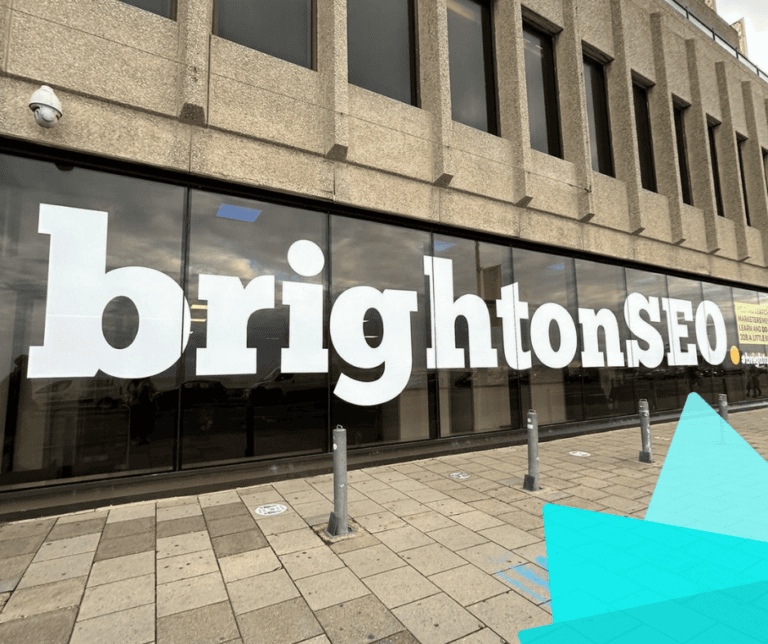Online Marketing KPIs That Really Matter
Having worked in online marketing for nearly 10 years (both pain and pride hearing that!) you become exposed to so many stats, key numbers and obscure terminologies. But which of them really matter?
Outside of the ultimate goal of conversions, sales and leads, what are the online marketing KPIs that your business focuses on as an indication of strong performance? As an online marketing agency owner that detests lazy ‘download csv’ style reports, reporting clearly and accurately is a subject I take great pride in.
Before I share the online marketing KPIs that I think matter the most, we have to consider the marketing campaign you are running; be that paid or organic campaigns.
So without further ado here we go.
Organic Campaign KPIs:
-
Organic Traffic
For any business, organisation or individual, organic traffic is something you need to be monitoring and aware of. Organic traffic can be defined as people that find your website by typing a query into a search engine and then choosing to click on your website without clicking on a paid ad. Organic traffic is viewed by many marketing heads as the most vital marketing metric, as it brings people to your website without needing to pay for advertising costs.
The Problem Is….
Whilst organic website traffic is such a valuable commodity it is extremely competitive and difficult to achieve long term. Hence its high value. Nothing that valuable tends to be easy! Investing in your long term search engine optimisation strategy with a focus on content marketing is a great place to start and has to be persevered with to see long term rewards.
Why it’s a strong online marketing KPI?
It’s free and focused traffic to your website. To achieve positive organic traffic it’s also highly likely that Google perceives your website to be relevant, interesting and engaging to users.
2. Keyword Rankings
Keyword rankings are somewhat of a bad word for online marketing agencies. Whilst they are important to judging the success of SEO campaign performance, keyword rankings can land agencies in hot water and cause clients to needlessly panic over perceived drops in search performance. For this reason, many agencies opt to avoid showcasing these KPIs in monthly reports. But are they right to do so?
The reason many agencies avoid displaying keyword rankings as their online marketing KPIs is because it will invariably always show them up to look bad in some way shape or form. For example, if you agree with a client to focus on 20 important keywords to their business and report monthly, it’s almost impossible to guarantee that every month ALL 20 keywords will improve and won’t drop off, no matter the quality of the work that is being undertaken.
Various external factors outside of an agency’s control such as a Google algorithm change or website speed issues can lead to ranking decreases. Furthermore, significantly improved competitor activity with higher marketing budgets is hard to compete with as well as forecast. To walk into a monthly meeting with a client and inform them that for November their prized keyword ‘Tree Surgeon In Islington’ has dropped from 3rd to 5th is hard to explain in the short term and can lead to some red faces and blubbering explanations!
However, don’t let this shortsightedness deter you from tracking your keywords. Overall it’s a vital KPI that should be approached with patience.
But why are keyword rankings so important?
Ranking higher in search engines for valuable keywords is imperative to a successful organic marketing strategy. As a business owner you have to accept that search engine rankings are volatile and like the stock market will show many short term fluctuations before revealing a long term gain pattern.
Give your strategy a chance and a time period for a proper overall review where you can assess performance and what you have gained. Personally, for keyword rankings I recommend reporting monthly to monitor performance. For overall campaign performance I would suggest at least 6 months. It will likely take nearer to 1 year to really see a full transformation of your keyword rankings, but will absolutely be worth it for the long term organic traffic benefit.
3. Keywords In The Top 100
The difference between keyword rankings and keywords in the top 100 is that keyword rankings look specifically at the position of a certain keyword within search engines while keywords in the top 100 look only at how many keywords your website ranks for in the top 100 search positions of Google.
Keywords in the top 100 are an interesting online marketing KPI. For example, your business would be better off ranking for just ONE keyword in the top 100 search positions, if that keyword ranked #1 for a highly popular and valuable term such as ‘Tree Surgeon’ than ranking for 500 less relevant keywords that were in search positions 20+ unlikely to generate significant volumes of traffic.
Of course, these examples are only relevant to a Tree Surgeon business 😉
Practically though, the example above only attempts to illustrate the value of really ranking in the top search engine spots. There is an overwhelming correlation between the number of keywords you rank in the top 100 positions for, versus organic traffic. And, by ranking for numerous keywords it would likely assume your website had a strong content marketing strategy and was being indexed by Google for the right reasons.
How can I improve my keywords in the top 100?
Great question. The way to improve this KPI is through regular and informed content marketing. Write fantastic content pieces that are genuinely interesting and focused towards keywords you know have value for your business and are realistic in terms of being able to rank for. The biggest stumbling block for any business trying to achieve this aim is consistency. Having the time and resources to keep up a regular content marketing strategy is challenging and often bottom of many businesses priority lists. It is what it is, as the old saying goes, the effort you put in is the reward you get back.
Paid Campaign KPIs
-
Cost Per Conversion
A conversion is the end goal of your paid marketing campaign. Be it lead generation, e-commerce sales or interaction with a specific function on your website, this is your ultimate goal of running a paid campaign. But whilst conversions are your end goal it obviously depends on how much you are spending. Getting 8 conversions in January versus just 5 in December is great, but not if you spent less over Christmas as you cut your advertising budget. Make sure to keep an eye on this metric and let it play a significant role in your overall campaign performance.
2. Average Session Duration
For me, average session duration is one of the most important online marketing KPIs. Average session duration, as the name would suggest, looks at how long each user spends on your website. But why does that matter so much? Especially, why does it matter more than pages per session or bounce rate?
Average Session Duration sums up overall user experience quite nicely. The longer someone spends on your website the more likely they are engaged with your services and likely to lead to a ‘conversion’. Bounce rate is great, but if your bounce rate is strong because someone clicks just one link then exits because they can’t find what they want it can be misleading. Pages per session is also useful, but if you’re running a targeted campaign to a specific landing page you might not need the user to go any further than just interacting with one page of your website.
Average session duration takes a nice average of both of these metrics and spells out how engaged a user was with your website and how long they stayed active for. If you’re running a paid campaign, keep an eye on the average session duration and try to improve on it each month as your KPI.
You can also use average session duration to determine the keywords or target audiences with the highest engagement levels and use this to influence your paid campaigns strategy.
Good Score For Average Session Duration
<20 seconds: Not good at all – look at your targeting or keywords and start again
21-40 seconds: Not awful but probably not great either. Ideally improved upon.
41 secs – 1 min: Slightly better, shows some people are engaged and there for the right reasons.
1.01 – 1.30 min: This is getting good. At this level users are more engaged.
1.31 – 2.30 min: This is the range you want to aim for.
2.30min +: I believe in miracles, where you from? You sexy thing you.
DISCLAIMER: I must point out that this is VERY rough and based on a variety of factors. Many websites have a simple easy to use landing page that would not need a user to spend over 1 minute engaging with it and a score of less than 60 seconds might be completely acceptable. This guide should simply be used as a rough point of reference.
3. Conversion Rate:
Conversion rate looks at how many people converted per 100 sessions on your website. So if you had 4 conversions on your website after 100 sessions your conversion rate would be defined as 4%.
Conversion rate is a great way of monitoring how successful your website is for converting potential leads. Many people say that 2% is supposed to be an ‘average conversion rate’ across industries but this of course is dependent on how easy or difficult your defined conversion is to achieve.
Online Marketing KPIs Summary:
Overall it’s important to focus on the right online marketing KPIs that matter to your business. Don’t get lost hunting down obscure numbers that you actually can’t do much with in terms of action points. Focus on some of the key KPIs we’ve mentioned above and make sure you have patience to let the campaign develop before you review/assess your progress.
For more information on online marketing KPIs don’t hesitate to reach out to us and we can send you an example of one of our typical monthly reports for clients. We always aim to personalise each report to the project we work on and ensure we are presenting you with data that matters, you understand and can actually interpret.
For more you can call us on 0207 068 4047 or email us at connect@signifydigital.com






